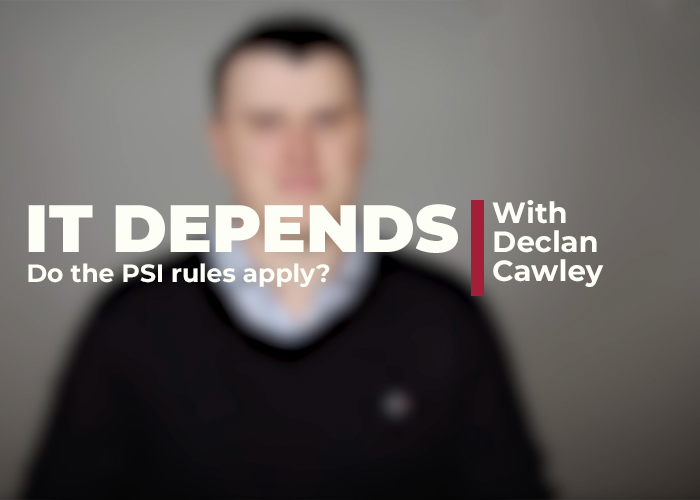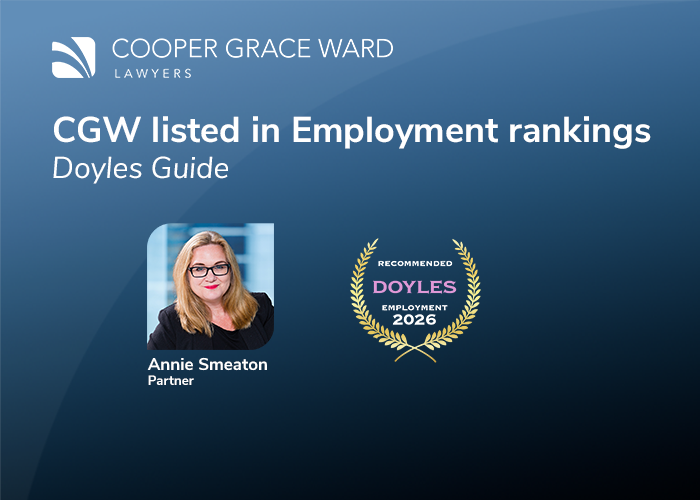In this edition of ‘It depends’, graduate Declan Cawley talks about PSI rules: what they are, whom they apply to and the things you need to consider.
VIDEO TRANSCRIPT
Welcome to this instalment of It Depends. Today we’ll be talking about personal services income.
What is personal services income?
Personal services income is defined as income that is mainly a reward for your personal efforts and skills. Therefore, if your income is mainly from the supply of materials or from the supply and use of income producing assets, it will not be PSI. The use of the word ‘mainly’ is crucial here and what it means is that you’ll need to ascertain whether more than 50% of your income is from the provision of your personal efforts and skills.
What do personal services income rules do?
The PSI rules ensure that all PSI receives the same tax treatment. They do this by ensuring that any PSI you earn is included in your assessable income rather than the assessable income of an entity. This means that you cannot direct payment of your PSI to an entity and obtain a tax benefit by doing so.
Do the PSI rules apply to my personal services income?
It depends. The PSI rules will not apply if one, the entity that receives your PSI promptly pays it to you as salary and wages. Two, the income of the entity is actually from its business structure. Or three, the entity is conducting personal services business. In today’s episode, we’ll consider when an entity will be conducting a personal services business and in a future episode, we’ll consider when the income of an entity is from its business structure.
Is my entity carrying on a personal services business?
An entity will be conducting a personal services business if it satisfies one of the four personal services business tests. The four personal services business tests are the results test, the unrelated clients test, the employment test and the business premises test. The latter three personal services business tests can only be considered if none of the individuals whose PSI is included in the income of the entity derive more than 80% of their income from a single entity or its associates.
What else do I need to consider?
If an entity is not subject to the PSI rules because it is conducting a personal services business, then it will still need to consider whether distributing its income in a particular way will be subject to the anti-avoidance provisions. The Commissioner has a series of public rulings dealing with this issue. In a later episode, I’ll discuss these rulings and the guidelines in PCG 2021/4 and outline how the PSI rules interact with the anti-avoidance provisions.
If you have any questions about PSI, please contact a member of the tax team.




